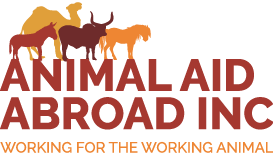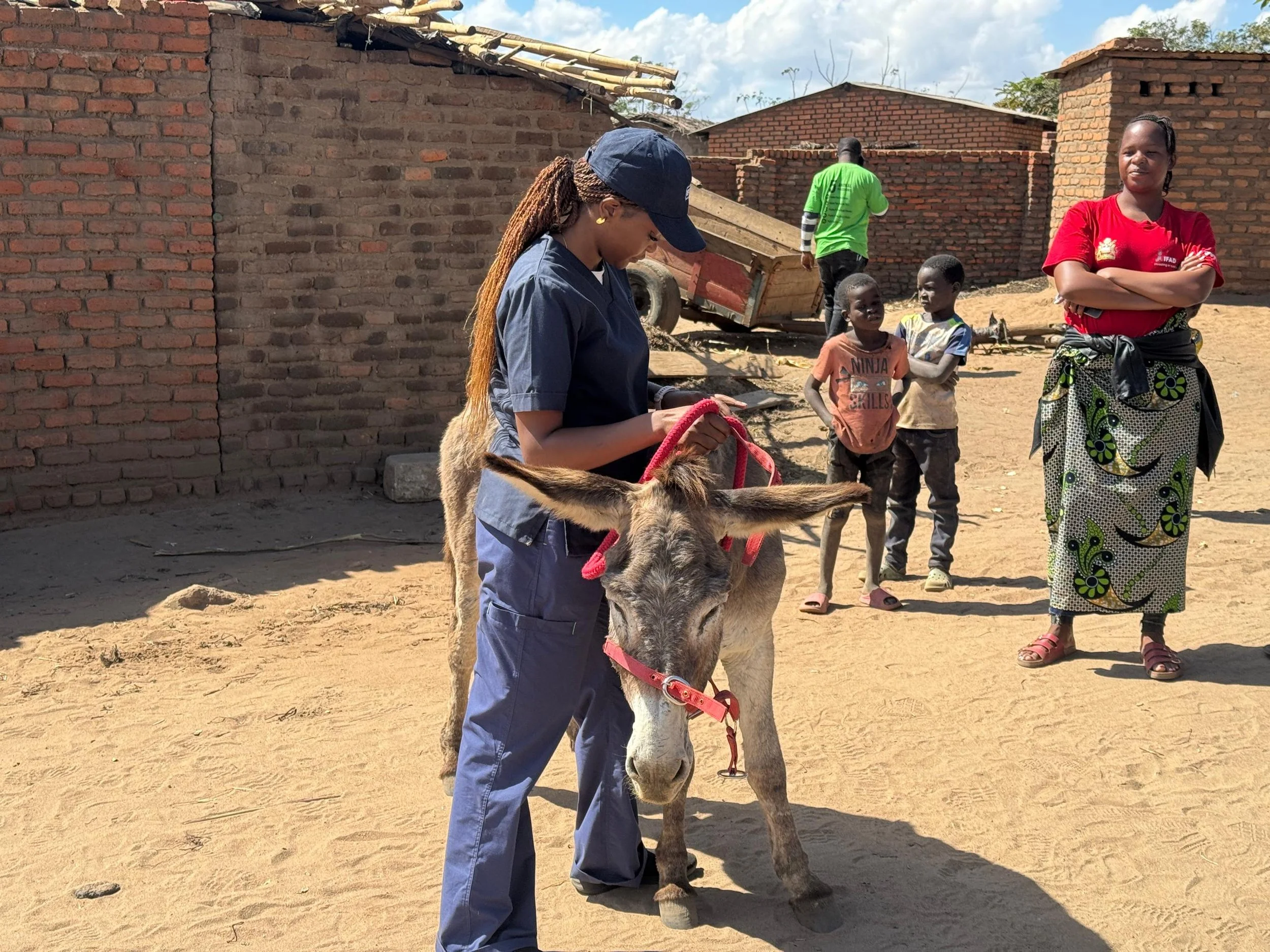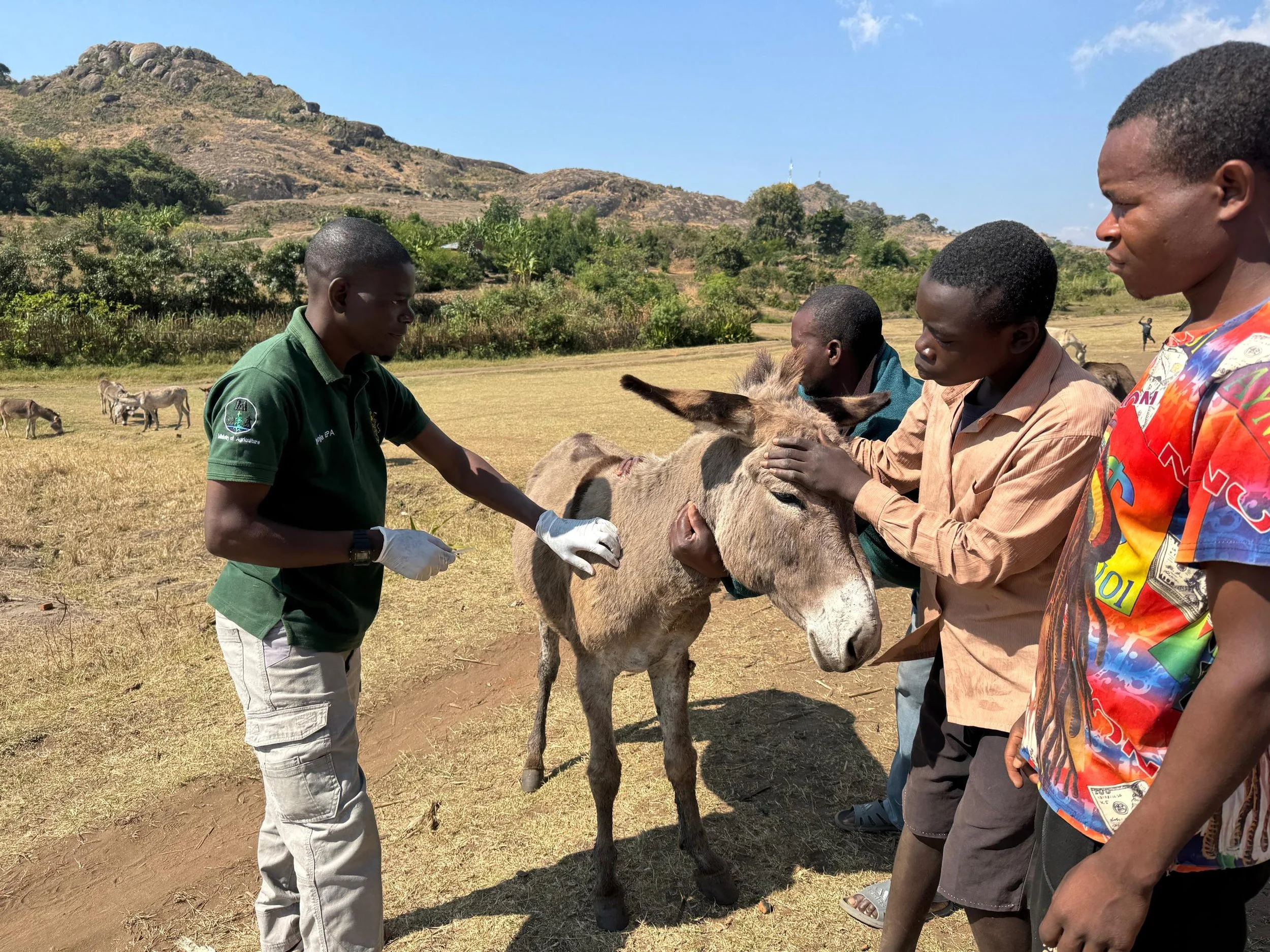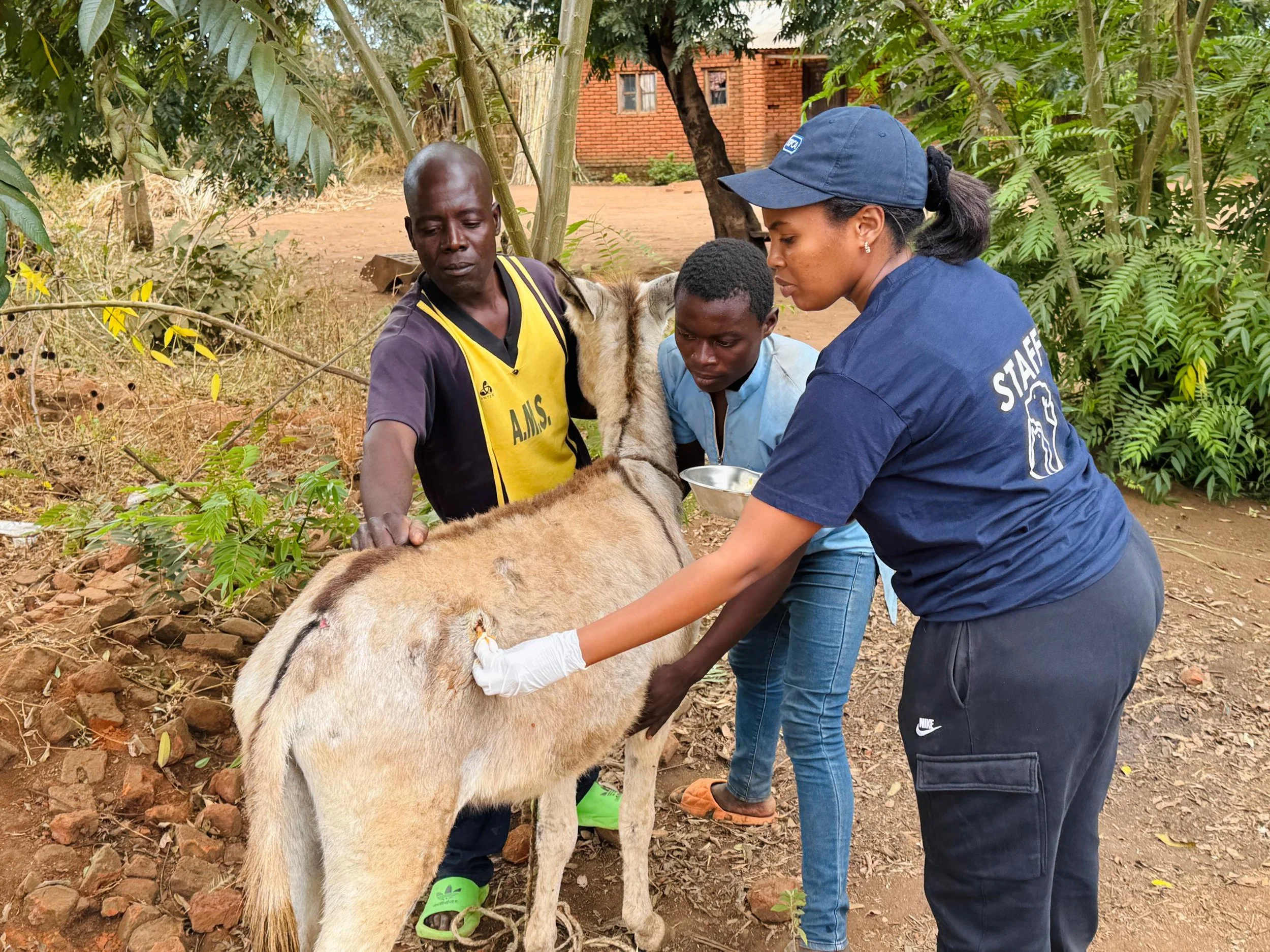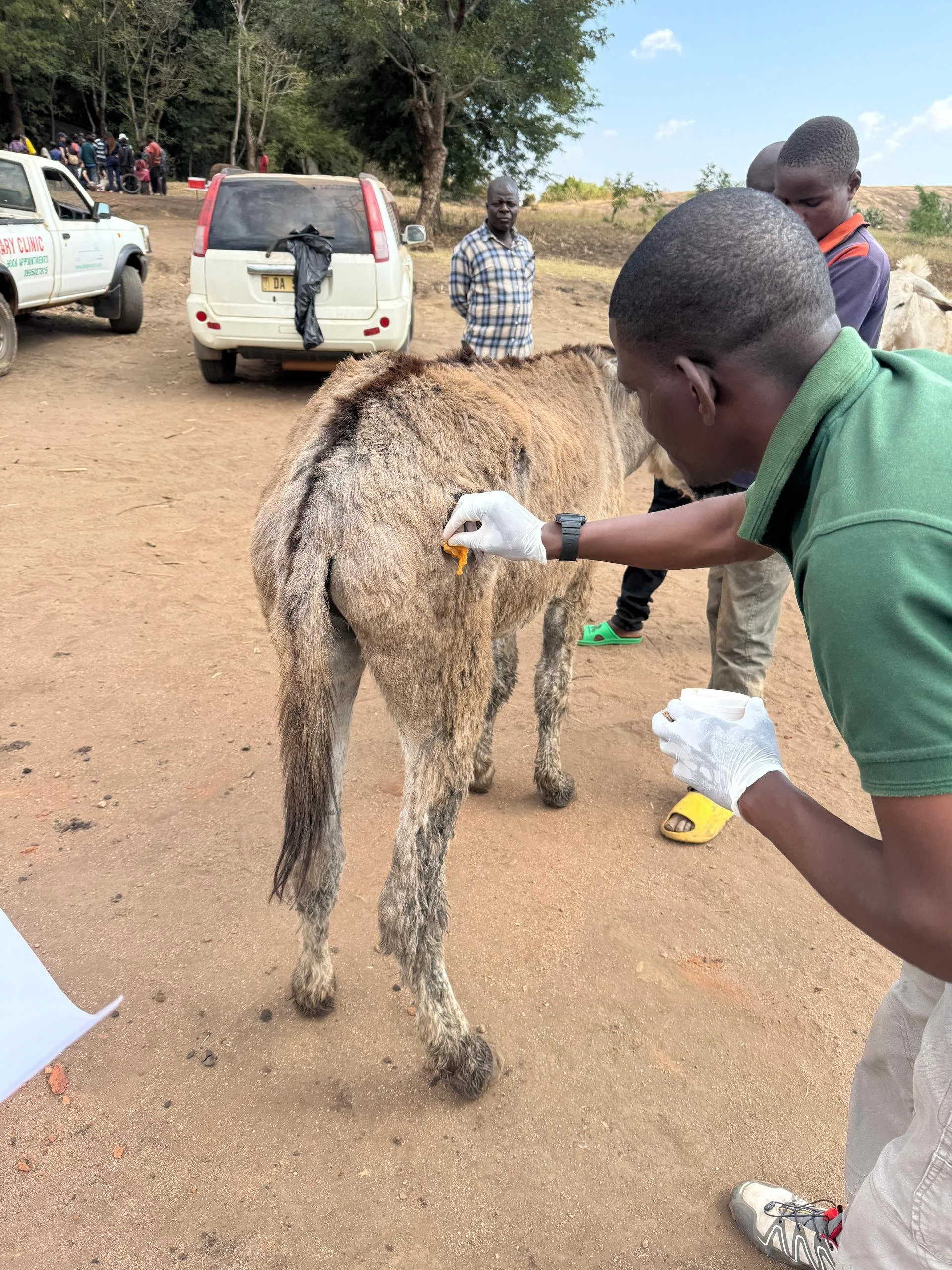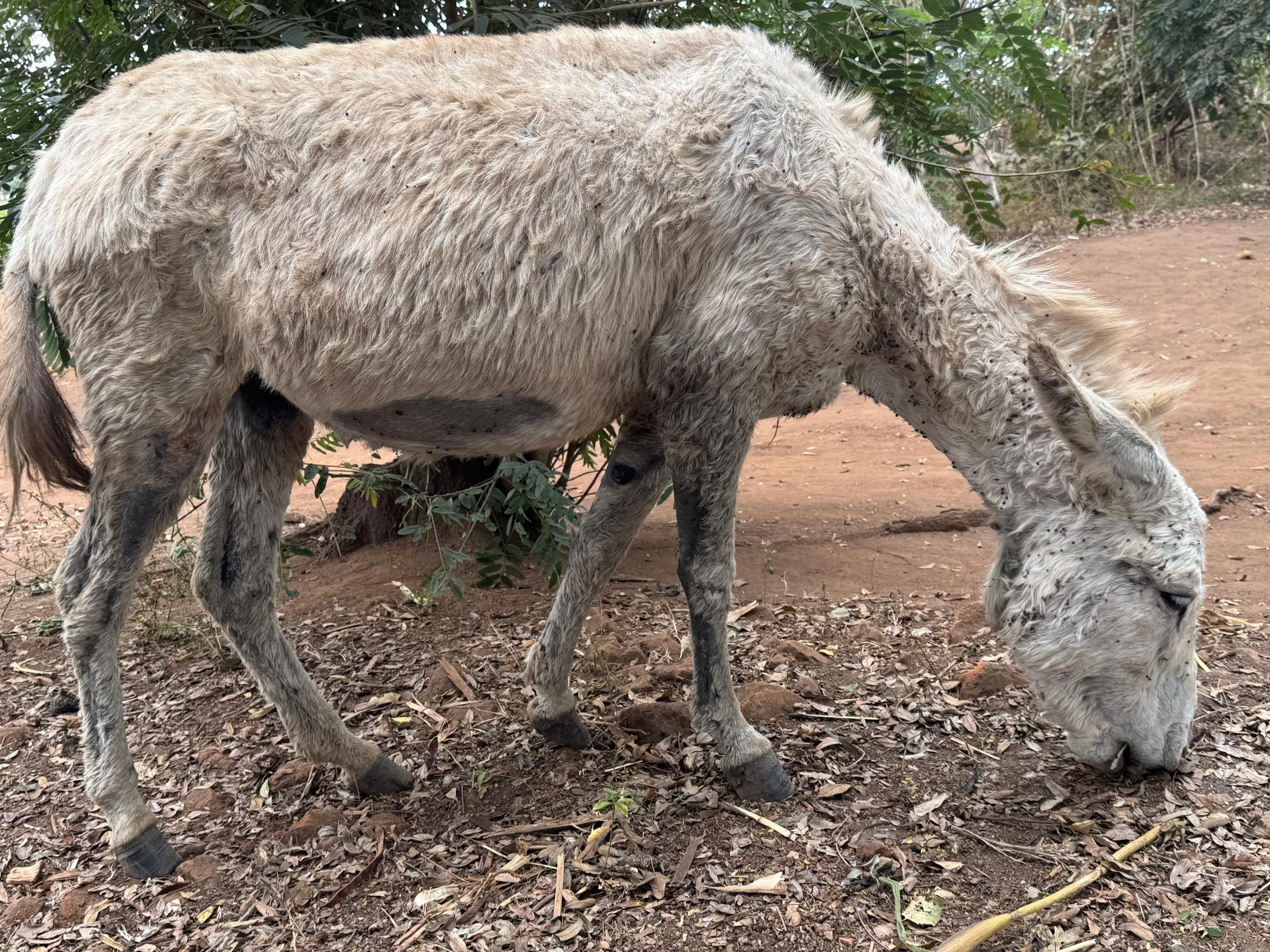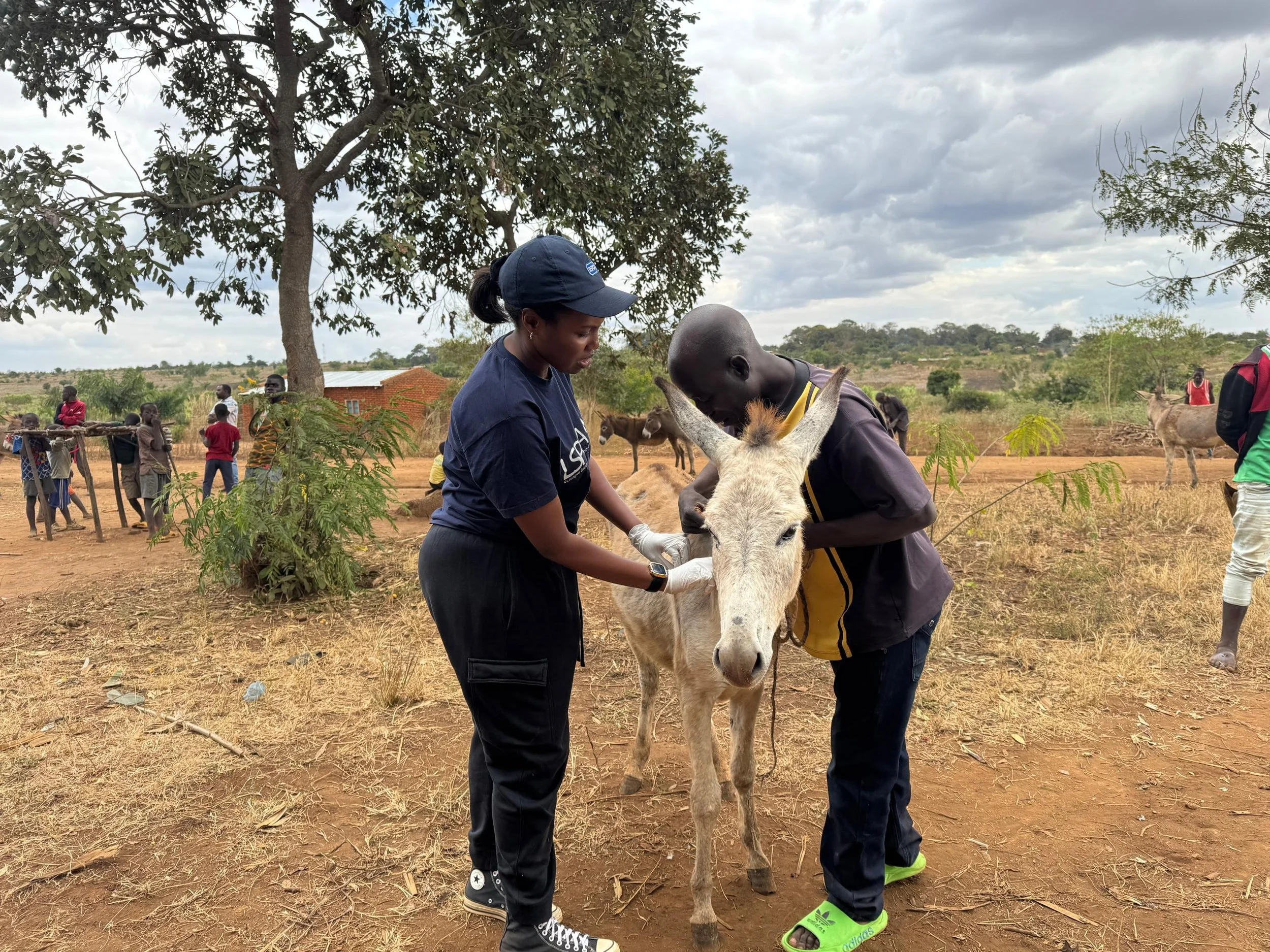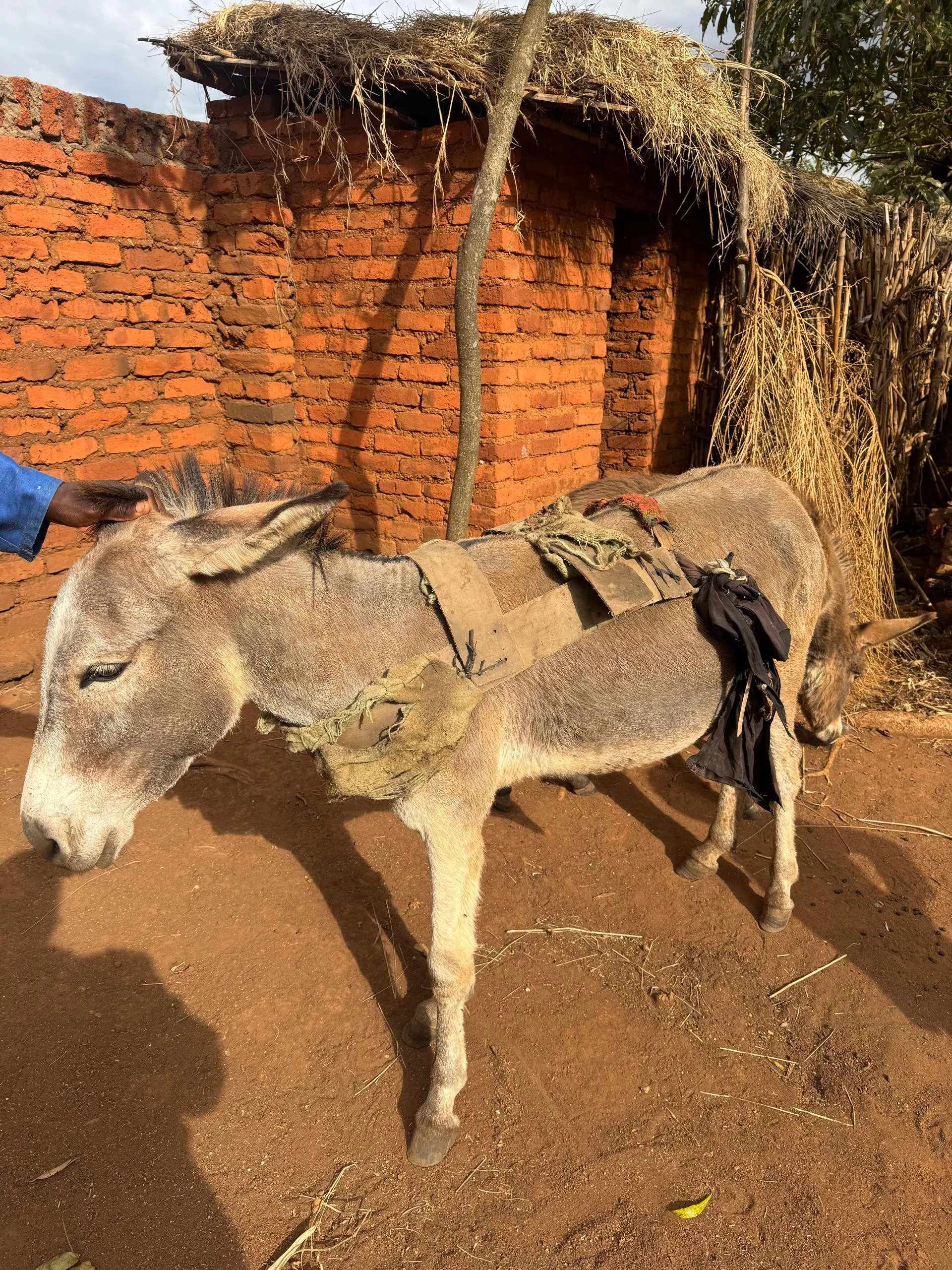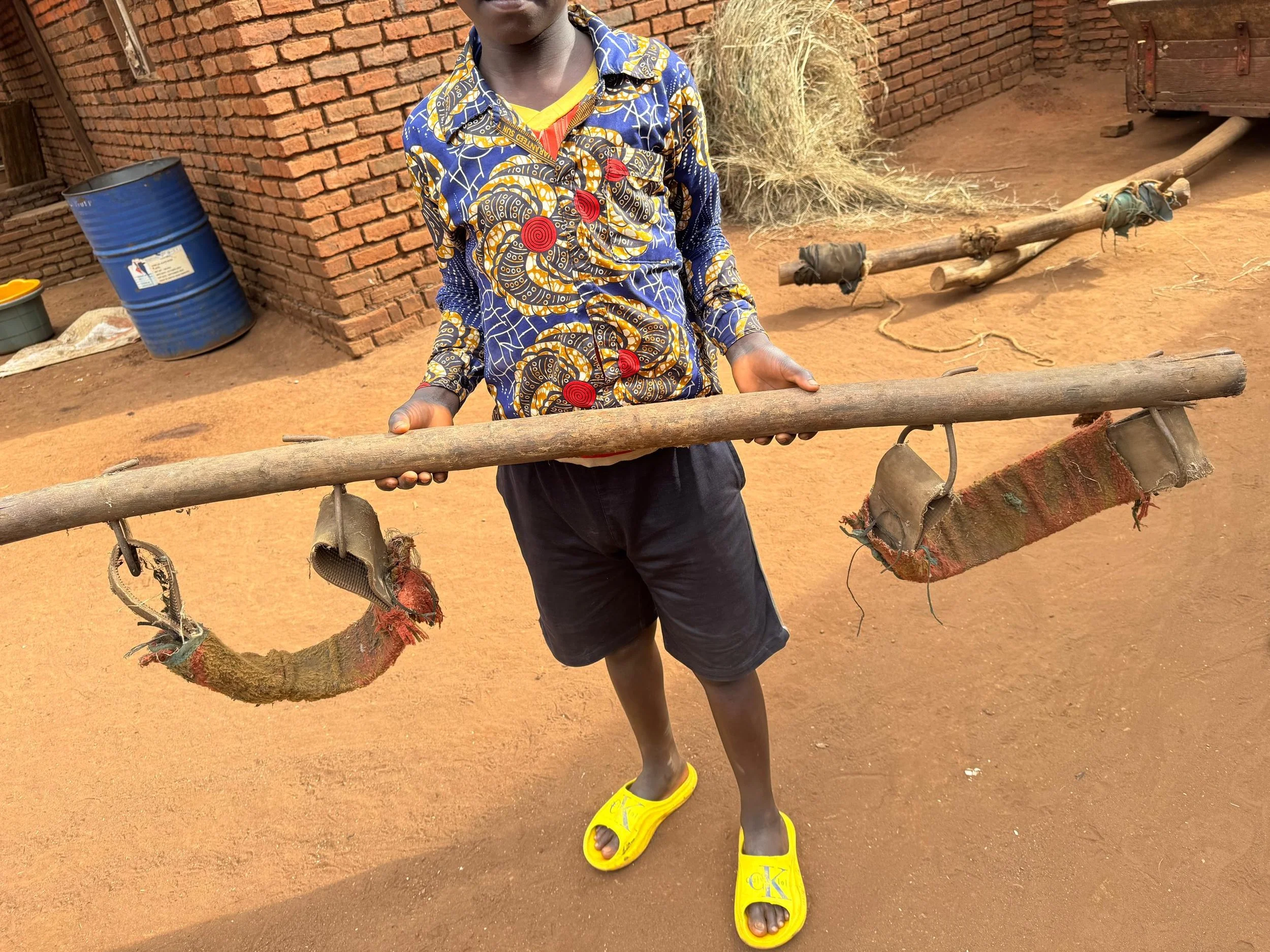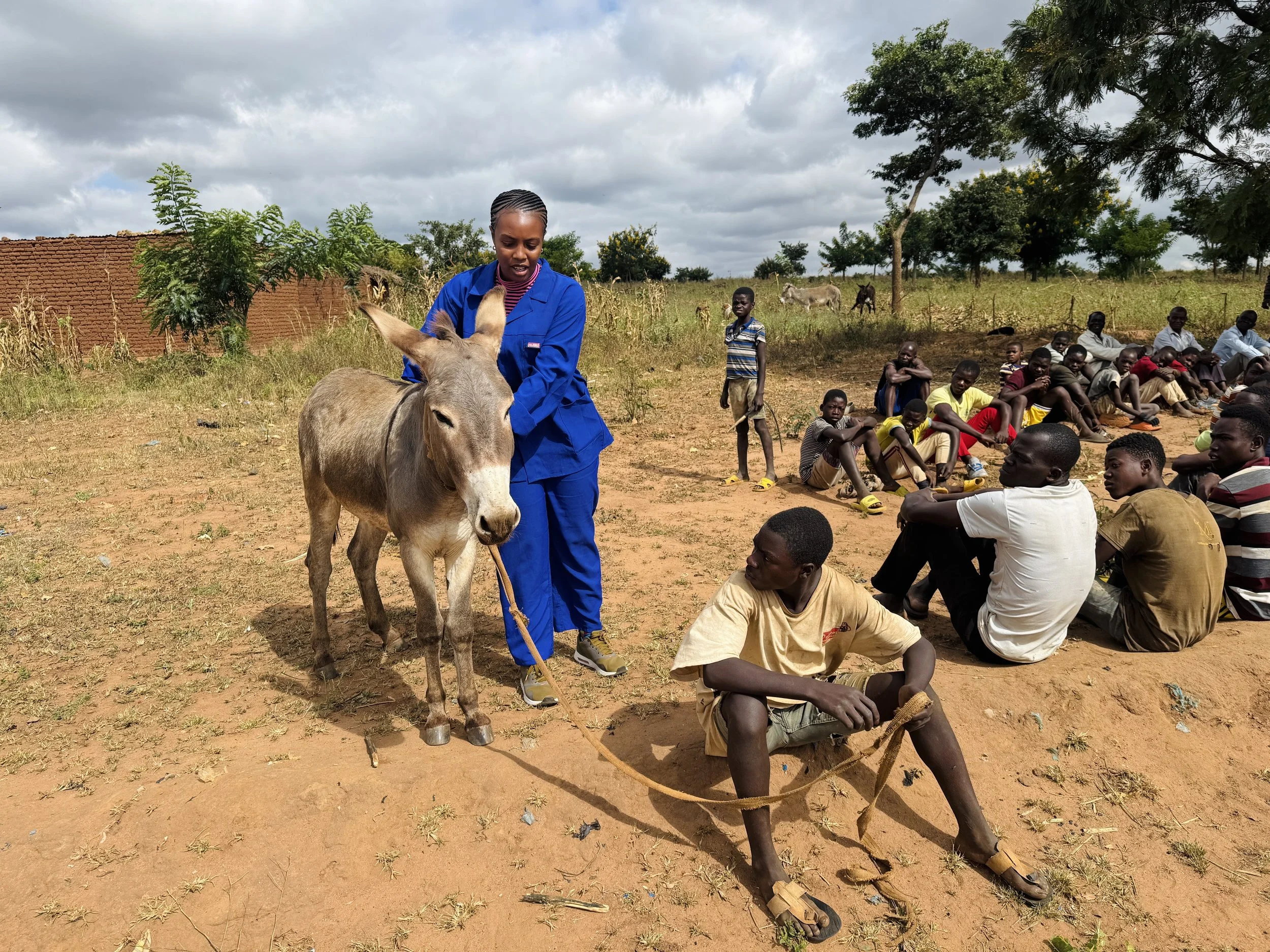Donkey Welfare in Malawi Improving with Vet Care and Education
One of our African partner groups, the Lilongwe Society for the Protection and Care of Animals (LSPCA), treated 227 working donkeys in the past month. They also focused on educating owners to improve animal welfare, and preventing wounds caused by improper harnessing.
See how your invaluable support is changing the lives of donkeys in Malawi:
Introduction
During this reporting period, the LSPCA, with support from Animal Aid Abroad (AAA), conducted two field visits to working donkey communities, one in Mpingu and one in Mitundu. These visits focused on providing veterinary care, promoting animal welfare education, and addressing persistent harness-related issues among donkey owners.
A total of 227 donkeys were examined and received treatment during the visits, while 67 owners participated in hands-on training that covered humane handling, donkey behaviour, communication, basic healthcare, hoof care, and proper harnessing techniques. Encouragingly, a growing number of owners demonstrated increased awareness and willingness to adopt improved welfare practices, particularly regarding wound management and the use of humane equipment.
Although the continued use of yoke carts and delayed disease reporting remain challenges, the field visits also revealed encouraging signs of openness from the communities towards veterinary support and welfare education. In response to a suspected disease outbreak reported in Mitundu, the team provided immediate care and conducted close follow-up with local farmers and veterinary officers. Moving forward, LSPCA aims to strengthen disease surveillance in partnership with local authorities and communities to enhance early detection and response.
Donkey Clinics and Field Activities
The first clinic was held in Mpingu on 30 May 2025. During this visit, 108 donkeys received veterinary care. Thirteen donkeys were presented with wounds, mostly caused by rough handling and lack of proper restraint during work. These wounds were treated using povidone iodine and oxytetracycline spray. In cases where infection or inflammation was observed, Penstrep and meloxicam were administered. Assistant Veterinary Officers (AVOs) were provided with wound care supplies such as povidone iodine and gauze swabs to continue cleaning the wounds daily, as several cases required repeat treatment.
In addition to wound care, 76 donkeys were dewormed, 9 pregnant donkeys received multivitamin injections, and 12 foals were examined and treated. As part of the clinic, farmers also participated in training sessions on humane handling, injury prevention, and basic hoof health.
The second clinic took place in Mitundu on 11 June 2025, where 119 donkeys were examined and treated. Twenty-three of them had minor wounds located around the knees or near the hooves, often caused by being tied to trees with tight ropes. Farmers were educated on safer alternatives to tethering, including the proper use of hobbles, which reduce the risk of entanglement, rope burns, and pressure injuries while still restricting excessive movement. They were also advised to use soft, wide straps and to ensure shaded, clean resting areas when donkeys are tied for long periods.
Twenty-eight donkeys had wounds resulting from bite injuries caused by other donkeys or from physical abuse such as whipping. Treatment followed the same approach as in Mpingu, using povidone iodine and oxytetracycline spray, with injectable Penstrep and meloxicam administered where needed. AVOs were provided with wound care materials and carried out daily cleaning of the wounds. They also worked closely with owners, training them on how to clean and monitor wounds properly. This hands-on training will enable farmers to begin taking over minor wound management and respond more confidently in future cases.
In addition to wound treatment, 87 donkeys were dewormed, three donkeys treated for eye infections, two underwent teeth rasping to address feeding difficulties, and one donkey received hoof trimming to correct overgrowth.
Harness and Cart Repairs
Despite previous efforts to distribute humane harnesses, the team observed that some owners had reverted to using traditional yoke carts and some were struggling to maintain their harnesses. Yoke carts, which rely on wooden neck restraints typically designed for oxen, are unsuitable and harmful for donkeys due to anatomical differences. The majority of harnesses observed required only minor adjustments such as added padding or resized straps to reduce pressure points and friction. These cases were documented for follow-up support. The situation highlights that even well-intentioned owners may revert to older methods in the absence of accessible repair support.
To address this, LSPCA will prioritise on-site harness repairs during the next visit by working with trained local artisans. The goal is to extend the lifespan of the humane equipment, reduce donkey injuries, and discourage regression to traditional systems.
Damaged harness
Problematic yoke harness
Challenges and Way Forward
Despite treating 227 donkeys and training 67 owners, some challenges persist. Notably, a number of owners revert to using yoke carts when humane harnesses become worn or damaged, leading to renewed risk of injury. LSPCA will continue to address this by providing harness repair services to help owners maintain improved practices and prevent regression to harmful methods.
Follow-up visits to assess donkeys treated during previous clinics are scheduled for this month. These visits will provide an opportunity to accurately evaluate recovery progress and reinforce key welfare practices. In the meantime, the team continues to support owners through phone check-ins and by linking them with local vet scouts and veterinary authorities where possible. Physical visits remain important to verify improvements and address any ongoing concerns.
Moving forward, LSPCA will return to Mpingu and Mitundu to conduct harness repairs and maintain ongoing community sensitisation on disease reporting, humane handling, and long-term donkey care. These efforts aim to build on recent progress and support sustainable improvements in donkey welfare.
